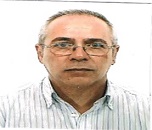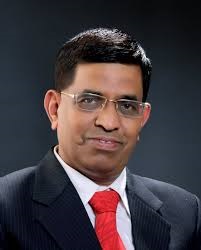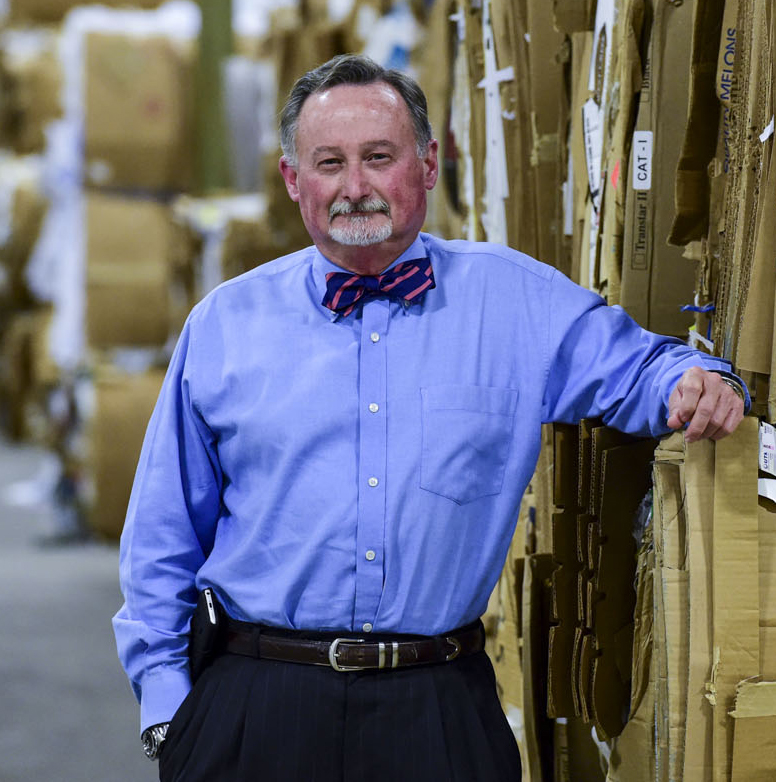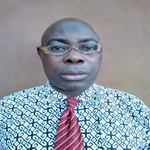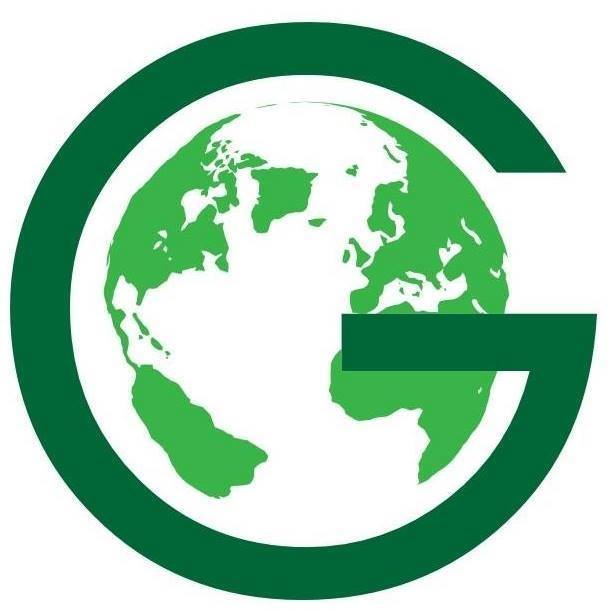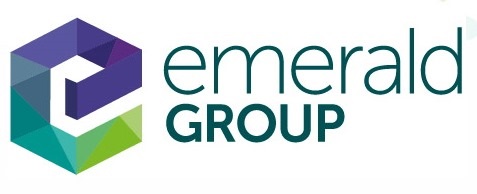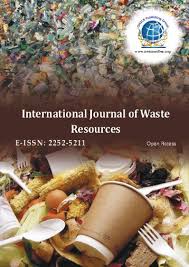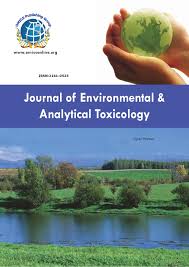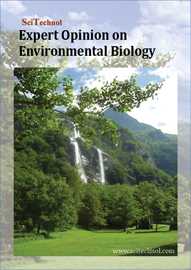Theme: Regenerate from Waste
Recycling 2017
Conference Series LLC Ltd proudly invites contributors across the globe to its 6th International Conference on Recycling during November06-08, 2017 in Las Vegas, USA which includes prompt keynote presentations, Oral talks, Poster presentations and Exhibitions.
Recycling -2017 is mainly based on the theme “Regenerate from Waste’’ We warmly welcome all the participants of world’s leading Scientists, Researchers and Scholars. We provide a platform for young researchers and students to present their research through oral presentations through which they can develop a foundation for collaboration among young researchers.
Conference Series LLC Ltd aims at setting a platform for all the budding scientists and researchers to present their real-time work and share their views and aspects related to the theme of the conference. The organizing committee is gearing up for an exciting and informative conference program including plenary lectures, symposia, workshops on a variety of topics, poster presentations and various programs for participants from all over the world.
Conference Series LLC Ltd organizes a conference series of 1000+ Global Events inclusive of 300+ Conferences, 500+ Upcoming and Previous Symposiums and Workshops in USA, Europe & Asia with support from 1000 more scientific societies and publishes 700+ Open access journals which contain over 30000 eminent personalities, reputed scientists as editorial board members.
For more details please visit: http://recycling.conferenceseries.com/america
About Conferences:
Conference Series LLC Ltd proudly invites contributors across the globe to its 6th International Conference on Recycling during November 06-08, 2017 in Las Vegas, USA which includes prompt keynote presentations, Oral talks, Poster presentations and Exhibitions.
Recycling -2017 is mainly based on the theme “Regenerate from Waste’’ We warmly welcome all the participants of world’s leading Scientists, Researchers and Scholars. We provide a platform for young researchers and students to present their research through oral presentations through which they can develop a foundation for collaboration among young researchers.
ConferenceSeries LLC Ltd aims at setting a platform for all the budding scientists and researchers to present their real-time work and share their views and aspects related to the theme of the conference. The organizing committee is gearing up for an exciting and informative conference program including plenary lectures, symposia, workshops on a variety of topics, poster presentations and various programs for participants from all over the world.
ConferenceSeries LLC Ltd organizes a conference series of 1000+ Global Events inclusive of 300+ Conferences, 500+ Upcoming and Previous Symposiums and Workshops in USA, Europe & Asia with support from 1000 more scientific societies and publishes 700+ Open access journals which contain over 30000 eminent personalities, reputed scientists as editorial board members.
For more details please visit: http://recycling.conferenceseries.com/america
Summary of the Conference:
Economic and environmental reasons are the base for the ever increasing needs of recycling in our society. Industries and governments are joining their efforts and learning to work together towards better, faster and more efficient ways to recycle for a better future. As people committed to increase the sustainability of our world by recycling resources, the delegates will share our accomplishments towards “Regenerate from Waste”. To create the awareness of recycling, we are conducting the 6th Annual Conference on Recycling during Nov 06-08, 2017 with the theme “Regenerate from Waste”.
Importance and Scope:
There are many reasons why it's important to recycle and compost as much as possible. It conserves raw materials and making new products out of recycled materials reduces the need to consume precious resources. So recycling helps protect raw materials and protect natural habitats for the future. As world is facing a shortage of raw materials, increased garbage in environment ,increased pollution Recycling - 2017 during Nov 06-08, 2017 is going to be held at Las Vegas with an aim to grow awareness and interests in the field of Recycling and its allied areas.
Conference Highlights:
• Waste Recycling Legislation
• Waste and Waste Water Recycling Methods
• Waste Water Recycling
• Chemical Waste Recycling
• Plastic Recycling
• Recycling Solid Waste
• Organic Waste Recycling
• Petrochemical and Oil Recycling
• Hazardous Waste Treatment
• E-Waste Recycling
• Recycling Market
• Entrepreneurs Investment Meet
Why to Attend??
The conference will provide a forum for exchange of recent research results among researchers from all across the world focused on learning and sharing knowledge upon use of Recycling and for discussion of future challenges in implementation and application of latest technologies and advances in this field.
A Unique Opportunity for Exhibitors and Sponsors at this International event:
http://recycling.conferenceseries.com/america/sponsors.php
Clean-tech investors Major Recycling and Waste Management Associations across the Globe:
• Air & Waste Management Association
• Alabama Recycling Coalition
• Aluminum Association, Inc. (DC)
• American Bureau of Metal Statistics, Inc.
• American Chemical Society, Rubber Division
• American Forest and Paper Association
• American Foundry Society (AFS)
• American Iron & Steel Institute (DC)
• Arizona Recycling Coalition
• Arkansas Recycling Coalition
• Association of Battery Recyclers
Association of Ohio Recyclers Major Recycling and Waste Management Associations in USA:
• National Waste and Recycling Association
• Ag Container Recycling Council
• Air & Waste Management Association
• Alabama Recycling Coalition
• Aluminum Association, Inc. (DC)
• American Bureau of Metal Statistics, Inc.
• American Chemical Society, Rubber Division
• American Forest and Paper Association
• American Foundry Society (AFS)
• Arizona Recycling Coalition
• Arkansas Recycling Coalition
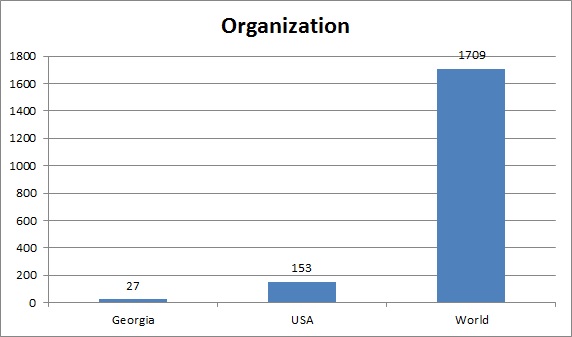
Target Fields:
• Recycling
• Waste management
• Environmental Sciences
• Chemical Engineering
• Environmental Engineering
• Textile Engineering
• Ecology
• Environmental organizations
• Scrap plastic product makers
• Collectors and MRF operators
Top Universities in USA:
• Harvard University
• Stanford University
• University of California, Berkeley
• Columbia University
• Princeton University
• University of Pennsylvania
• Yale University
• Duke University
• University of Nevada
• University of Phoenix
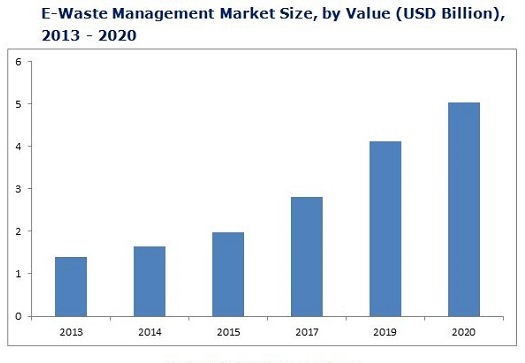
Every year, globally Conference Series LLC Ltd organizes series of International Recycling Conferences that includes Plastic Waste Recycling Conferences, Waste Recycling Conferences, Waste Management Conferences, Recycling Events, and Recycling Exhibitions.
On behalf of Recycling Conferences, we extend a warm welcome to the distinguished Nobel laureates, speakers, delegates related to recycling research, Recycling Industries, Recycling Associations and Policy Makers, from around the world to Las Vegas for 6th International Conference on Recycling which is going to be held during November 06-08, 2017 in Las Vegas, Neveda, USA. The theme of the conference is “Regenerate from Waste”. The conference mainly focuses on the importance of Recycling, Recycling basics and Waste management Techniques. Recycling Conferences aims to bring together leading Recycling Industries, Recycling researchers, Policy Makers, and Academicians, including Nobel Laureates to exchange and share their experiences and research results about all aspects of Recycling and its allied areas.
Track 1: Waste Recycling Legislations
Waste legislation establishes a new framework to modernize waste management and resource recovery practices. It will promote waste avoidance and reduction and encourage resource recovery and efficiency. The legislation concerns the agricultural production, the waste management and the energy sector. The waste legislation contains a suite of measures to reduce waste generation and landfill disposal and encourage recycling. Solid waste management is one among the basic essential services available to keep urban centers clean.
Track 2: Waste Management
In simple, Waste management can be defined as the collection, transport, processing or disposal, managing and monitoring of waste materials to minimize its' consequences on humans and environment. Based on the type of the waste generated, there are several methods available for their treatment and reuse. These waste management strategies help to reduce pollution. For example, by recycling waste and wastewater, we can reduce air pollution as well as water pollution. Aerobic oxidation, anaerobic digestion, composting, landfills, incineration etc are some of the methods for waste and water treatment.
Recycling Council Of Alberta, USA; Arizona Organics Products Committee, USA; Southwest Public Recycling Association, USA; California Resource Recovery Association, USA
Track 3: Wastewater recycling
Wastewater can be recycled and provides a valuable resource, one way limiting its effect on the environment. Water recycling is reusing treated wastewater for beneficial purposes such as agricultural and landscape irrigation, industrial processes, and toilet flushing, and replenishing a ground water basin. Recycled water for landscape irrigation requires less treatment than recycled water for drinking water. Water recycling has proven to be effective and successful in creating a new and reliable water supply without compromising public health. Recycling waste and grey water requires far less energy than treating salt water using a desalination system. At present, using recycled water has been increasing in many parts of the United States as well many countries around the world in order to accommodate the needs of the environment and growing water supply demands.
Track 4: Chemical Waste Recycling
Chemical wastes are the waste generally produced from chemical industries or by research laboratories and comprises of harmful compounds or substances. A chemical substance is a form of matter that has constant chemical composition and characteristic properties. It cannot be separated into components by physical separation methods, without breaking chemical bonds. Chemical substances can be elements, chemical, ions or alloys. Waste organic solvents especially non chlorinated solvents, waste elementary mercury, spent acids and bases are the usually the chemical substances that are recycled. Chemical waste recycling process is generally carried out by pyrolysis, degradation by heat in absence of Oxygen or air, or vacuum.
Track 5: Plastic Recycling
Plastic recycling is the process of recovering plastic material from scrap or waste plastic and reprocessing that material into useful products, sometimes completely different in form from their original state. Plastic is not normally biodegradable, recycling it is part of global efforts to reduce plastic in the waste stream, especially the approximately eight million metric tons of plastic waste that enter the earth's ocean every year. Plastic recycling includes melting down soft drink bottles and then casting them as plastic chairs and tables. Compared with lucrative recycling of metal, and similar to the low value of glass, plastic, polymers recycling is often more challenging because of low density and low value. There are also numerous technical hurdles to overcome during plastic waste recycling.
Track 6: Recycling Solid Waste
Solid wastes can be defined as any discarded or abandoned materials. Solid wastes can be solid, liquid, and semi-solid or containerized gaseous material. Solid waste includes waste tires, garbage, scrap metal, latex paints, compressed gas cylinders etc. Waste management is the process of treating solid wastes and offers variety of solutions for recycling items that don’t belong to trash. Waste management is collection, transportation, and disposal of garbage, sewage and other waste products. Garbage can be used as a valuable resource. Waste management disposes of the products and substances that you have use in a safe and efficient manner. The biggest advantage of the recycling solid waste is that it can reduce the volume of solid waste to 20 to 30 per cent of the original volume, decreases the space they take up and reduce the stress on landfills.
Track 7: Organic Waste Recycling
The main forms of organic wastes are household food waste, agricultural waste, human and animal waste. Organic materials originate from plants and animals. Organic waste comes from Fruits and vegetables, Meat, poultry, sea food, bakery items and ingredients, Paper products, Ice cream, yogurt, cottage cheese, Plants, cut flowers, potting soil etc. Organic wastes are usually dumped in landfills; it undergoes anaerobic decomposition and generates methane. Organic wastes are utilized in agriculture mainly for improving the soil physical and chemical properties and for nutrient sources for growing crops. The major source of organic waste used in agriculture is animal manure, but small amounts of food processing and other industrial wastes are also applied to land.
Track 8: Petrochemical and Oil Recycling
Petrochemicals are derived from various chemical compounds, mainly from hydrocarbons and these hydrocarbons are derived from crude oil and natural gas. Petroleum gases, naphtha, kerosene and gas oil are the main feed stocks for petrochemical industry. Petrochemical industry plays a vital role in economic growth and development of manufacturing sector. Oil recycling is needed for waste oil or used oil. Oil that has been contaminated with substances that may or may not be hazardous is termed as waste oil. Whereas used oil is defined as any petroleum or synthetic oil that has been used such that a clear change happens in the physical and chemical properties of the oil. Both the used oil and waste oil need to properly recycled or disposed in order to avoid environmental problems. Generally waste oils are used as hydraulic oil, transmission oil, brake fluids, motor oil, crankcase oil, gear box oil, synthetic oil etc.
Track 9: Hazardous Waste Recycling
Hazardous waste is a waste with properties that make it dangerous or potentially harmful to human health or the environment. Hazardous waste recycling regulations were designed to promote the reuse and reclamation of useful materials in a manner that is safe and protective of human health and the environment. Hazardous waste should never be thrown in the trash or recycling bin, flushed down the toilet or dumped down the drain or storm sewer. Recycling hazardous waste, rather than disposing of it, can significantly reduce your costs and regulatory and safety obligations. A hazardous waste is a special type of waste because it cannot be disposed of by common means like other by-products of our everyday lives. Depending on the physical state of the waste, treatment and solidification processes might be required. Minimizing or eliminating hazardous waste before it is generated is usually the most cost-effective and environmentally-protective.
Track 10: E-waste Recycling
Electronic waste or e-waste is the term used to describe old, end-of-life or discarded appliances using electricity. It includes computers, consumer electronics, fridges etc. which have been disposed of by their original users. These electronic products are made from valuable resources and materials, including metals, plastics, and glass, all of which require energy to mine and manufacture. Electronic waste contains deposits of precious metal estimated to be between 40 and 50 times richer than ores mined from the earth. Electronics Recycling has the breadth of services, depth of resources and nationwide partners, and facilities capable of serving the electronic waste recycling needs of all industries. One of the major challenges is recycling the printed circuit boards from the electronic wastes. The circuit boards contain such precious metals as gold, silver, platinum, etc. and such base metals as copper, iron, aluminum, etc. All Green Electronics Recycling’s, zero landfill policy not only helps preserve the environment, but also protects our environment from unnecessary risk.
Track 11: Recycling Market
According to the present market scenario, a significant attractive and viable development in the recycling market has been noticed. Moreover, environmental concerns, high commodity prices and increased regulation are making recycling market to increase drastically. In the last five years, demand for products manufactured with recycled goods has risen. As a result, the recycling facilities industry has experienced sustained growth. Furthermore, in the next five years, rise in environmental awareness will continue to spread throughout the US as well rest of the world population; demand will continue rising, as new regulations require manufacturers to use more recycled goods.
Government of each and every country is allotting grants to recycling the waste and implementing projects to reuse the material. For example England Government is funding grants for seven recycling projects and according to that at least 75% waste should recover from the landfill by 2021. The grants allotted for each project as follows $5 million to Dial-A-Dump to build a new commercial and industrial waste facility, $5 million to Resource Co Asia (Australia) to establish a new facility to recover dry mixed commercial and industrial waste, $2.645 million to Bio Coal to develop a new facility to recover organic material from kerbside residual waste.
Conference Highlights
- Rubber Recycling
- Organic Waste Recycling
- Petrochemical and Oil Recycling
- Waste Recycling Legislations
- Waste Management
- Wastewater Recycling
- Chemical Waste Recycling
- Hazardous Waste Recycling
- E-Waste Recycling
- Plastic Recycling
- Recycling Solid Waste
- Recycling Market
- Entrepreneur Investment Meet: Recycling-2017
- Waste Management Engineering
- Biofuels
- Nano Environmental Technologies
- Renewable Energy
- Bio Energy
- Sustainable Energy Resources
- Sustainable Energy Policies
- Renewable Energy and Climate Change Mitigation
To share your views and research, please click here to register for the Conference.
To Collaborate Scientific Professionals around the World
| Conference Date | November 6-8, 2017 | ||
| Sponsors & Exhibitors |
|
||
| Speaker Opportunity Closed | Day 1 | Day 2 | Day 3 |
| Poster Opportunity Closed | Click Here to View | ||














